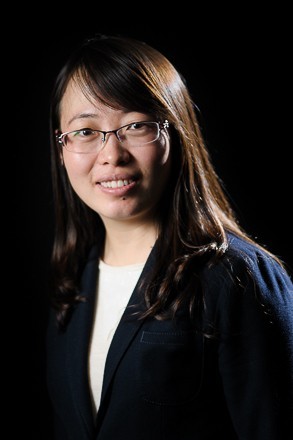High Resolution Accurate Mass (HRAM): The capability of next generation mass spectrometers for quantitative bioanalysis
Quantitation of proteins is vital for the biotherapeutic industry. Proteins may be present in multiple isoforms and fragments, derived from variations in genetic code, alternate splicing, processing events, post-translational modifications and catabolism. Analytical methods for reliably identifying and measuring these variants are needed. Antibody-based assays are the primary tools used to quantify proteins. However, these methods require significant time and effort to generate reagents for each protein studied.
Recently, high resolution/accurate mass (HRAM) based approaches have emerged as promising alternatives for therapeutic protein quantitation in serum/plasma. High-throughput methods for quantitation of biotherapeutics by both intact protein and proteolytic peptides were developed on a Thermo Fisher ScientificTM Q ExactiveTM mass spectrometer based on the molecular weight of protein biotherapeutics. Different HRAM targeted quantitation approaches will be discussed. Insulin (~5.8kDa), IgG1 light chain (~23kDa), and IgG1 (~150kDa ) were selected to demonstrate quantitation of intact therapeutic proteins vs proteolytic peptides with digestion.
What you will learn:
- What is HRAM and how is it different from LC-MS/MS?
- When is HRAM the best choice?
- Benefits of HRAM for quantitation of biologics.
Who should attend:
- Lab Directors
- Group Leaders
- Lab managers
- Bioanalytical scientists
- Mass spectrometrists
- Ligand binding scientists.
Panelist biographies:
Patrick Bennett
Executive Director Biomarkers
PPD
Patrick received B.S. and M.S. Degrees in Toxicology and Pharmacology, respectively, from St. John’s University in Jamaica, NY and an M.B.A. in International Marketing from Syracuse University. He has held scientific, management and executive level positions at BMS, Advion (now Quintiles), Tandem Labs and Thermo Fisher Scientific. He recently joined PPD in Richmond, VA to create a bioanalytical group that focuses on Biomarker Services. His expertise is focused on small molecule bioanalysis using mass spectrometry. Over the last six years, he has shifted his focus to high resolution mass spectrometry and it’s applications to large and small molecule bioanalysis.
Dr. Jessica Wang
Senior Marketing Specialist
Thermo Fisher Scientific
Jessica earned a B.S. and a M.S. degree in chemistry in Jilin University, China and the Ph.D degree in analytica chemistry at University of California, Riverside focusing on anti-cancer drug DNA molecular biomarker study and the quantitative proteomics analysis of 6-thioguanine induced changes in human leukemia cells in order to explore the mechanism of the cytotoxicity of thiopurine drugs. She joined Thermo Fisher Scientific in 2010 as the application and demonstration chemist then moved to marketing group as the senior marketing specialist for Biopharma applications within the Chromatography and Mass Spectrometry Division.


